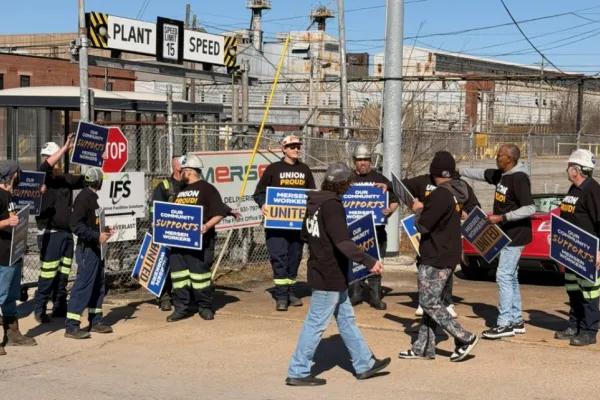MISSION ACCOMPLISHED? NOT SO FAST!
We can't let corporate America succeed in killing the National Labor Relations Board and workers' rights. Unions and allies are fighting back.
How Did We Get Here?
The NLRB protects private sector workers, whether union represented or not. It's where we turn to make sure our employers are honoring our contracts and for help when management breaks the law. It's where workers who are illegally fired because they want a union look for justice. It's where workers who use social media to talk about their workplace can go for protection of that right to free speech on the job.
In January 2013, our system of labor law enforcement was thrown into chaos. A radical decision by three members of the D.C. Circuit Court of Appeals said recess appointments by President Obama (plus many of Presidents Bush and Clinton) were invalid because the Senate was technically not in recess when the appointments were made.
By the way, the decision was made by just three judges (all appointed by President Bush) because nominations to the court's vacancies were being blocked by Senate Republicans. Known as Noel Canning v. NLRB, the decision virtually eliminates the ability of a President to make recess appointments.
The NLRB now has three members: two who are recess appointments and one whose term expires on Aug. 27, 2013.
What's Happening Right Now?
It's no surprise that big corporations, egged on by the U.S. Chamber of Commerce and others, are refusing to follow decisions and rules handed down by the NLRB and some of its 28 regional offices. And it's no surprise that Senate Republicans are continuing their campaign to block all of President Obama's nominations, whether to the NLRB, the Consumer Financal Protection Bureau, the Environmental Protection Agency, the federal judiciary and other federal agencies.
For the NLRB, we're down to the last few weeks. Workers need a fully functioning NLRB. The only way that will happen is if the Senate Democratic majority votes to change the Senate rules, so that the President's nominations can get an up or down vote.
Graphic Audio First Contract Negotiations: 02/24/2026
Get Involved: CWA Black History Month Town Hall


